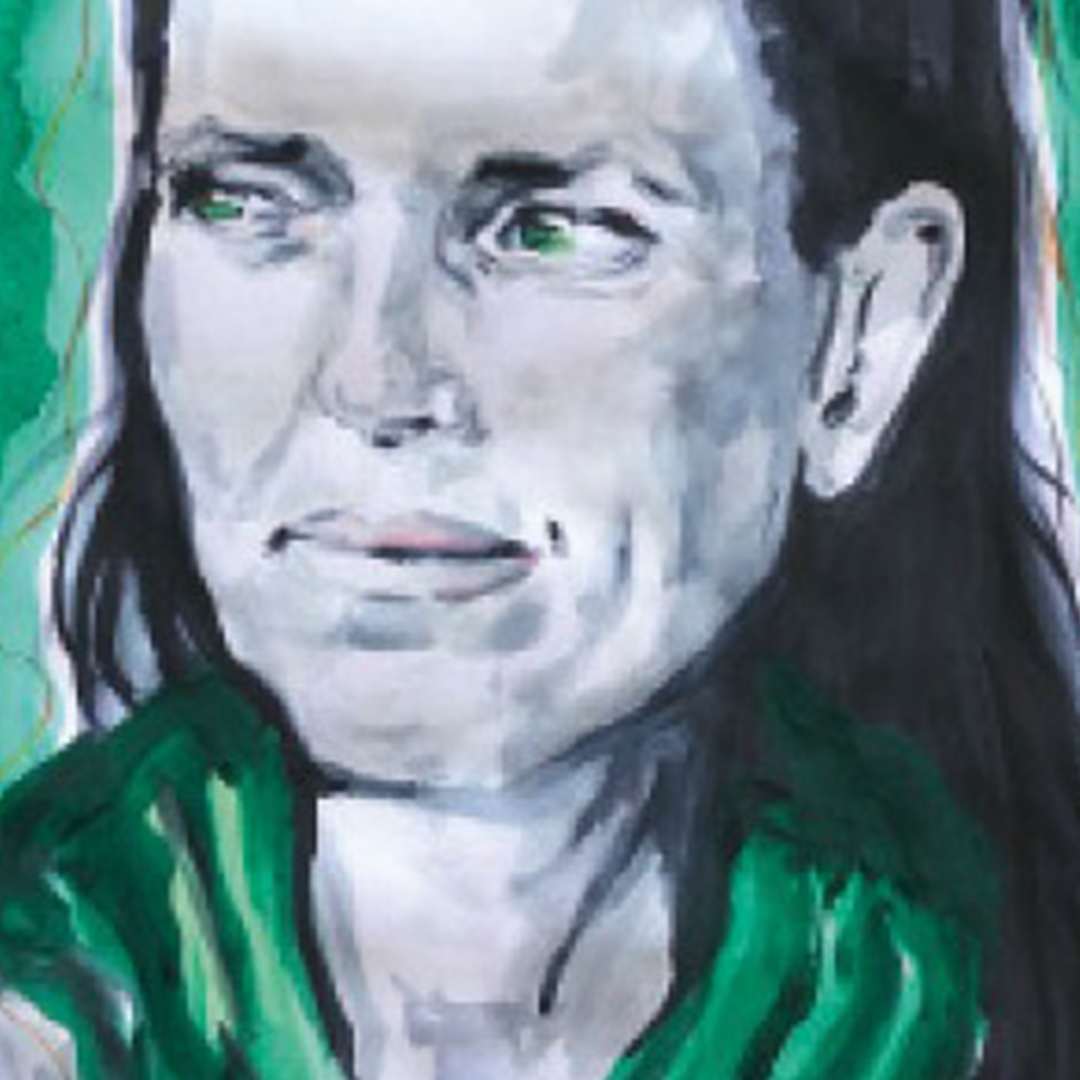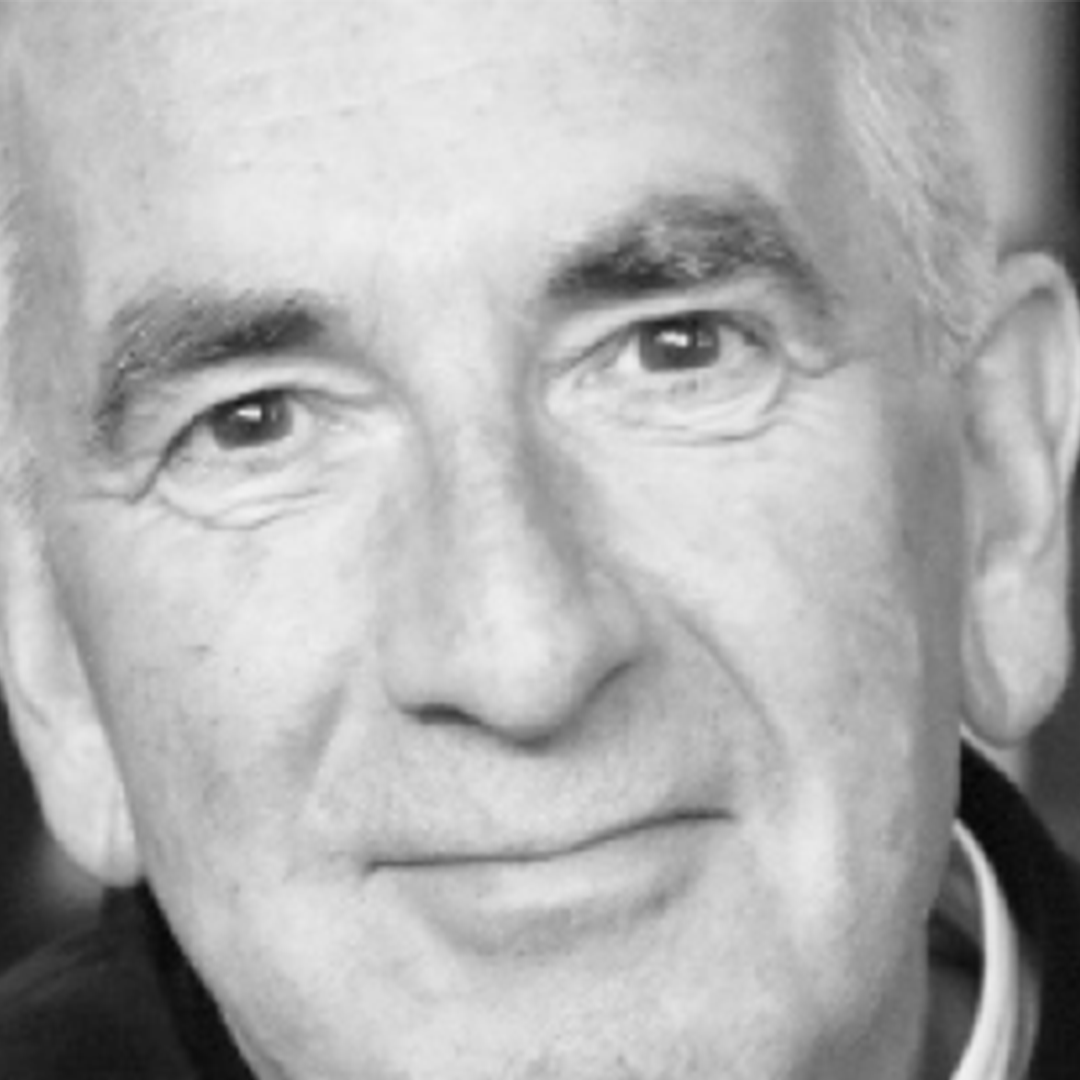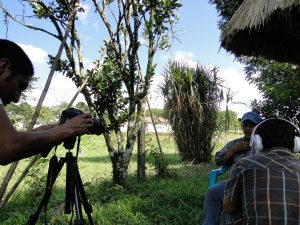Index relies entirely on the support of donors and readers to do its work.
Help us keep amplifying censored voices today.
FEATURING

Writer

Novelist

Author
[vc_row][vc_column][vc_column_text]This article is part of Index on Censorship partner Global Journalist’s Project Exile series, which has published interviews with exiled journalists from around the world.[/vc_column_text][vc_single_image image=”106335″ img_size=”full” add_caption=”yes”][vc_column_text]On a sunny day in June 2008, in the small city of Ascensión in northern Mexico, journalist Emilio Gutiérrez received a phone call from a friend. She was very nervous and said she needed to meet him in person urgently. When the friend, a local teacher named Olga, arrived, her message was unequivocal.
“They are going to kill you,” she said. A family member she knew was in the Mexican military and had told her he had been assigned to be part of a special project to kill the journalist. He was telling Olga in order to warn Gutiérrez. A single father who had been threatened by the military previously and recently noticed that he was under surveillance, Gutiérrez took his 15-year-old son Oscar and left home. Within days, he was heading towards the US border in El Paso, Texas.
“I was never interested in coming to the United States because I liked my job, I like my country, I had my family there, I practically had everything,” Emilio says, in an interview with Global Journalist. “I never got a passport because I didn’t want to leave Mexico.”
El Paso means “the step” in Spanish. And for Emilio it was a step away from fear and persecution; and he hoped, a step towards freedom. He never imagined coming to the USA would mean family separation and a tedious decade-long legal battle that would leave both his and Oscar’s life in limbo – and facing repeated deportation orders. His life in exile highlights not only the dangers Mexican journalists face: according to the Committee to Protect Journalists, at least 32 have been killed in Mexico since 2008, the year Emilio left. But it also demonstrates the challenges journalists seeking asylum in the USA confront in working through a slow-moving and sometimes capricious immigration system.
Emilio’s story began in Nuevo Casas Grande in the northern state of Chihuahua as a curious and ambitious 18-year-old. He started in journalism as a photographer for a local newspaper and then began reporting. Motivated by the idealism of many young journalists, Emilio hoped to improve society by changing people’s views of the world.
“In my country, we have had to live a lot of despair because of poverty and lack of education,” he says. “A feeling of nonconformity and rebellion was born in me at a young age knowing that I was able to change the mentality of people through the media.”
In 2000, Emilio moved to Ascensión, a city of 13,000 about two hours southwest of Ciudad Juarez and its sister city of El Paso, Texas. Much of his job was in the countryside, and Emilio became a boots-and-cowboy-hat reporter for the newspaper El Diario del Noroeste, covering issues from local politics to school events. But by 2005, life was changing in northern Mexico as conflict among drug cartels and between the Mexican state and criminal gangs sent crime and violence soaring – the start of what would be a dark era in Mexican history.
A power struggle between the Joaquin “El Chapo” Guzman’s Sinaloa cartel and the Gulf cartel left as many as 1,000 dead in 2005 and made border cities like Nuevo Laredo the scene of nightly gun battles. President Vicente Fox responded by deploying the army to northern Mexico to try to control the violence. But reporters weren’t immune to the toll: in 2014 and 2015, six Mexican journalists were murdered after reporting on organised crime and government corruption.
In early 2005, the mayor of a small Mexican border town called Puerto Palomas contacted Emilio to complain that the Mexican army had seized control of a hotel in town named La Estrella, according to documents later filed in US immigration court. Emilio published an article 4 February of that year titled “Demands to Stop Impunity,” criticising the army’s takeover of La Estrella. Like many sensitive newspaper stories, the article ran without a byline – so as to offer some measure of protection to the reporter.
It didn’t work. About a week later, Emilio received a call from an army officer. One of his superiors wanted to meet him in person. “Either you come see us, or we will come to see you,” he was told.
Emilio came to the meeting in downtown Ascensión accompanied by Oscar, then 12, thinking he would meet the officer in a hotel dining room. It was evening when he arrived, and Emilio left Oscar in the car. But the journalist never made it to the hotel. Instead, he was taken to a pickup truck where he later testified he was met by the Mexican Army general Alfonso Garcia Vega.
Vega was upset. “So you are the son of a bitch that’s writing these stupidities?” Vega asked him, according to court records.
There wouldn’t be another article, Vega warned Gutiérrez. Mexico’s secretary of defence was very angry, the general warned. “Why don’t you write about drug traffickers?” Vega asked him. “You don’t write about them, but you write about us. We, who get rid of drug traffickers. I feel like getting you in my truck to take you to the mountains, so you can become aware of our work and how we get rid of the drug traffickers.”
Soldiers surrounded Emilio, nearly pinning him against the general’s truck, he later told a US immigration court. He was eventually released, but Emilio wondered if it was only because people from the town had passed by him and greeted him while he was speaking with the soldiers.
When Emilio made it back to Oscar and his vehicle, he drove away and then telephoned his editor to tell him what had happened. The next day El Diario struck back, publishing an article about the incident headlined “Members of the Military Threaten Reporter’s Life,” based on Emilio’s account.
He also sought to raise the issue with the government. Emilio filed a complaint about the incident with the Chihuahua state prosecutor’s office and wrote to the National Human Rights Commission in Mexico City. The prosecutor’s office told him they would investigate the threat, but Emilio never heard from them again. The human rights commission conducted an investigation and concluded that no members of the Mexican military had been responsible for the incident. However, the commission did send a letter to the local command of the Mexican army, instructing them to avoid acts that intimidate or hinder freedom of expression.

Emilio Gutiérrez. (Credit: Lynette Clemetson)
This outcome didn’t make Emilio feel safe. So over the next three years, Gutiérrez went back to reporting local news, politics and sports, taking care not to report on the Mexican military. It was a big subject to ignore: by 2006 the Mexican military was in an all-out war with drug cartels that killed hundreds of people each month. For a time, Chihuahua was the scene of the bloodiest fighting, with 6,757 deaths from cartel-related violence between 2006 and 2010, according to the Associated Press.
For Emilio, there were no further threats. That is, until one night in early May 2008. He and Oscar were at home when he heard a loud noise outside his home just after midnight. In court, Emilio later testified that he went to his living room and saw a group of about 50 soldiers. They kicked in his front door and pointed their guns at him as he stood in his living room in his underwear.
After Emilio told them he was a journalist, they forced him to the ground and told him they were searching the house for drugs and guns after receiving an anonymous report – though they had no search warrant. After the soldiers were through and prepared to leave, one soldier, who Emilio later identified as a lieutenant, told him to “behave” and gave him a telephone number to call in the event that he wanted to report any illegal activity.
When the men had left, Emilio called the police to report the incident – but no police ever came. The next day, Emilio told his editor of the events, and soon thereafter he helped the paper publish an article headlined “Soldiers Raid Journalist’s Home”.
That didn’t end things. A few weeks later, Emilio noticed men with military-style haircuts watching his home. Frightened, he and Oscar went to spend the night at a friend’s house. That night, he got the call from Olga warning him that the military was planning to kill him – and he and Oscar were soon driving towards the US border and safety.
Emilio and Oscar, then 15, arrived at the border without passports. Emilio told US border agents that he was a journalist who had received death threats and was seeking asylum. The two were separated. Oscar was sent to a detention centre for minors for seven months, while Emilio was held in a separate detention centre.
“My son is my life,” Gutierrez says. “To be separate and to not know what was coming destroyed a part of our lives.”
During two and a half months in custody, father and son were able to speak on the phone briefly just three times. The two were released in Texas in early 2009 to await adjudication of their asylum applications by US immigration authorities.
In the meantime, the Gutiérrezes moved to Las Cruces, New Mexico, about an hour’s drive from El Paso. After seven months of detention, Emilio’s financial situation was dire – so he sold his house in Mexico for a fraction of its value. After a time, he received a US work permit and took as many jobs as possible to survive while awaiting an asylum hearing. He did landscaping, washed dishes and eventually ran his own food truck.
The case moved slowly through the system, and Emilio had to periodically report to US immigration authorities to show he hadn’t fled. He cycled through a number of immigration lawyers. Hearings were postponed, and months turned into years. Oscar, no longer a boy, left high school and began culinary school. In November 2016, seven years after the Gutiérrezes left Mexico, Emilio had a hearing on the merits of his asylum case before a US immigration court in El Paso.
It didn’t go well. The government’s immigration counsel questioned why would be targeted by the military if his name wasn’t on the offending articles, why the journalist who covered the hotel takeover would be threatened, but not the mayor, the original source of the articles. The government also suggested that the raid on Gutiérrezes’ home had been routine at that time of the drug war, and suggested that if he felt threatened, Emilio could have moved elsewhere in Mexico. The prosecutor also questioned why the journalist had rejected an offer of bodyguards from Mexico’s National Human Rights Commission and instead chose to remain in the USA, despite the fact that the bodyguards might come from the Mexican military itself.
In July of 2017, US immigration judge Robert Hough ruled against the Gutiérrezes. Among other conclusions, Hough noted that Emilio had failed to obtain corroborating testimony and documents from witnesses in Mexico. The judge questioned why he had fled to the USA instead of moving elsewhere in Mexico, and whether the Mexican military would still kill him if he returned home. Emilio and Oscar were ordered to be removed from the USA, nine years after arrival.
The removal didn’t come immediately. Emilio and his lawyer sought to appeal Hough’s decision before the Justice Department’s Board of Immigration Appeals. Yet that would take time. Fortunately for Emilio, he had gained some notable allies in the US media. In October of 2017, he went to Washington, DC to accept the National Press Club’s John Aubuchon Press Freedom Award.
In his acceptance speech at a black-tie gala, Emilio criticised the Mexican government for failing to protect journalists – but also blasted the USA, saying that American officials were failing to protect human rights at home even as they lectured other countries on the subject.
Just over two months later, in December 2017, Emilio and Oscar appeared in El Paso for a routine immigration check-in while their appeal was still pending. To their surprise, they were placed in handcuffs and informed they would be deported immediately.
Emilio’s lawyer, Eduardo Beckett, managed to win an emergency stay of the deportation order from the Board of Immigration Appeals just before they could be taken back to Mexico. But instead of being released to go home pending a hearing before the board’s appellate body, the two were placed back in an Immigration and Customs Enforcement agency detention centre.
The months ticked by. Emilio grew frustrated and worried. He didn’t have access to his blood pressure medication. Life in the detention centre was grim.
“They destroy you mentally, physically and morally,” he said. “The person that isn’t sick gets sick in the detention centres.”
Outside the El Paso detention centre, Emilio’s supporters were looking for a lifeline. In February 2018, the National Press Club reached out to Lynette Clemetson, the director of a programme for journalists at the University of Michigan. The National Press Club was seeking support for an amicus brief in the Gutiérrezes’ case.
Clemetson started to read more about Gutiérrez and in April of 2018, she and the NPR journalist Luis Trelles went to meet him and Oscar in the detention centre in El Paso. When she met Gutiérrez, she decided to interview him for one of the university’s prestigious Knight-Wallace fellowships.
“Emilio has faced a bureaucracy and a migratory system that does not see the danger that he has faced due to his job,” said Trelles.
Clemetson and Trelles were sympathetic – and soon offered him a fellowship, but Gutiérrez was unable to accept since he was still in detention.
In May of 2018, there was a moment of victory. After the National Press Club, the Pen America Center and 16 other organisations filed a friend-of-the-court brief on Emilio’s behalf, the Board of Immigration Appeals stayed the Gutiérrezes deportation order and ordered the El Paso immigration court to rehear the case. Despite this, Immigration and Customs Enforcement kept the Gutiérrezes in detention for two additional months. After seven months in detention, Emilio and Oscar were released in July. Clemetson and the Gutiérrezes flew together to Michigan – where Emilio began his fellowship.
“His case exemplifies what we are supposed to stand up for,” said Clemetson.

Emilio Gutiérrez has received support from the Knight-Wallace programme at the University of Michigan as well as from numerous press freedom groups. (Credit: Lynette Clemetson)
During his time at the University of Michigan, Emilio took classes on migration, human rights and English. University life in Michigan was a change from Las Cruces, but still his future was clouded by uncertainty. The rehearing on his asylum case was still pending, and though Emilio had more allies helping him prepare supporting evidence, including a brief from a who’s who list of the most prominent journalism associations, nothing was certain.
Among the problems for his asylum case was the fact that Alfonso Garcia Vega, the Mexican army general who threatened Emilio back in 2005, had since died. Despite this, Emilio argued that he still faced threats from other officers who worked with Vega and from the Mexican military generally, given his outspoken criticism of its corruption during his years in the USA.
In addition, Emilio still had been unable to obtain written corroboration of his accounts of threats from his former editor at El Diario or from the friend who warned him of the threat to his life. “Nobody wrote a letter of support because they are afraid,” says Gutierrez.
Another challenge was that the rehearing of his case was once again assigned to Judge Hough in El Paso, the same judge who had denied Emilio’s initial asylum request and ordered he and Oscar be deported. Such rulings by immigration judges are the norm in the El Paso immigration court, where on average only six per cent of asylum requests were approved between 2013 and 2018, according to data from Syracuse University’s TRAC database. That compares with a national approval rate for asylum of 35 per cent in 2018.
In October of last year, a decade after they left Mexico, Emilio and Oscar had their request for asylum heard a second time in El Paso. In addition to Emilio, Clemetson, of the Knight-Wallace Foundation, testified in court on his behalf. But unfortunately for the Gutierrezes, the outcome was still the same. In a decision issued on 4 March, Hough found that Emilio’s testimony was “weak” and not credible. He found that the documentary evidence supporting Emilio’s argument that his life was threatened in Mexico to be insufficient, and that the threats against him by the Mexican military did not meet the legal test for demonstrating persecution.
“Nothing in the record indicates that the respondent’s notoriety as a journalist would outlast his decade-long absence from Mexico, or that the military would single him out,” Hough wrote.
For a second time, Oscar and Emilio were ordered to be deported back to Mexico.
Hough, of course, could be right. Perhaps those who targeted him in the Mexican military have moved on.
But in the meantime, Mexico is as dangerous as ever for journalists. In January, a radio journalist who had been under protection by a Mexican government programme to defend journalists and human rights defenders was found dead near a highway in Baja California. Since then, according to the Committee to Protect Journalists, another Baja California journalist was badly beaten by baseball-wielding men; a radio reporter in Sonora was shot dead in his home; an Oaxaca journalist survived being shot in the back and arm; and a sports reporter in Sinaloa was found dead after being apparently beaten to death.
Nor is there reason to believe that the Mexican government can keep the military from carrying out attacks on civilians it chooses to target. A study published in 2017 by the Washington Office on Latin America found that of 505 investigations opened by Mexico’s attorney general into human rights violations by members of the military, just 16 ended with a conviction. Nor is the government better at investigating attacks on journalists. Attacks on reporters in Mexico are so common that the government has a special prosecutor to investigate such crimes. Since its creation in 2010, the office has opened 1,000 investigations, but obtained just seven convictions, according to Human Rights Watch.
In an interview with Global Journalist, Emilio says he’s frustrated with the US immigration system and plans another appeal to the Board of Immigration Appeals. Yet with two adverse rulings against him, his chances appear slim. In the meantime, he and Oscar live with the knowledge that they might be deported at any time. Still, Emilio is determined that no matter the outcome, he can’t go back to Mexico and live safely.
“I hope the judge realises that we are not asking for asylum because we are looking for a green card, we are seeking asylum to preserve our lives,” he says.
Note: Global Journalist executive editor Kathy Kiely has done advocacy for the Gutierrezes through the National Press Club. Kiely was not involved in the editing or reporting of this story.[/vc_column_text][/vc_column][/vc_row][vc_row][vc_column width=”1/2″][vc_video link=”https://youtu.be/6BIZ7b0m-08″][/vc_column][vc_column width=”1/2″][vc_column_text]Index on Censorship partner Global Journalist is a website that features global press freedom and international news stories as well as a weekly radio program that airs on KBIA, mid-Missouri’s NPR affiliate, and partner stations in six other states. The website and radio show are produced jointly by professional staff and student journalists at the University of Missouri’s School of Journalism, the oldest school of journalism in the United States. [/vc_column_text][/vc_column][/vc_row][vc_row][vc_column][vc_custom_heading text=”Don’t lose your voice. Stay informed.” use_theme_fonts=”yes”][vc_separator color=”black”][vc_row_inner][vc_column_inner width=”1/2″][vc_column_text]Index on Censorship is a nonprofit that campaigns for and defends free expression worldwide. We publish work by censored writers and artists, promote debate, and monitor threats to free speech. We believe that everyone should be free to express themselves without fear of harm or persecution – no matter what their views.
Join our mailing list (or follow us on Twitter or Facebook). We’ll send you our weekly newsletter, our monthly events update and periodic updates about our activities defending free speech. We won’t share, sell or transfer your personal information to anyone outside Index.[/vc_column_text][/vc_column_inner][vc_column_inner width=”1/2″][gravityform id=”20″ title=”false” description=”false” ajax=”false”][/vc_column_inner][/vc_row_inner][/vc_column][/vc_row][vc_row full_width=”stretch_row_content”][vc_column][three_column_post title=”Global Journalist / Project Exile” full_width_heading=”true” category_id=”22142″][/vc_column][/vc_row]
[vc_row][vc_column][vc_custom_heading text=”Crime writers have less to lose than travel writers in describing the underside of holiday spots, argues Rachael Jolley in the summer 2018 issue of Index on Censorship magazine.” google_fonts=”font_family:Libre%20Baskerville%3Aregular%2Citalic%2C700|font_style:400%20italic%3A400%3Aitalic”][vc_single_image image=”101057″ img_size=”full” add_caption=”yes”][vc_column_text]
[/vc_column_text][/vc_column][/vc_row][vc_row][vc_column width=”1/4″][vc_icon icon_fontawesome=”fa fa-quote-left” color=”custom” align=”right” custom_color=”#dd3333″][/vc_column][vc_column width=”3/4″][vc_custom_heading text=”The results are stark. Many top tourism destinations do terribly on freedom of expression.” google_fonts=”font_family:Libre%20Baskerville%3Aregular%2Citalic%2C700|font_style:400%20italic%3A400%3Aitalic”][/vc_column][/vc_row][vc_row][vc_column][vc_column_text]

The other side: Maltese journalist Daphne Caruana Galizia was murdered on 16 October 2017
[/vc_column_text][/vc_column][/vc_row][vc_row content_placement=”top”][vc_column width=”1/3″][vc_custom_heading text=”Trouble in paradise” font_container=”tag:p|font_size:24|text_align:left” link=”url:https%3A%2F%2Fwww.indexoncensorship.org%2F2018%2F06%2Ftrouble-in-paradise%2F|||”][vc_column_text]The summer 2018 issue of Index on Censorship magazine takes a special look at how holidaymakers’ images of palm-fringed beaches and crystal clear waters contrast with the reality of freedoms under threat
With: Ian Rankin, Victoria Hislop, Maria Ressa [/vc_column_text][/vc_column][vc_column width=”1/3″][vc_single_image image=”100776″ img_size=”medium” alignment=”center” onclick=”custom_link” link=”https://www.indexoncensorship.org/2018/06/trouble-in-paradise/”][/vc_column][vc_column width=”1/3″ css=”.vc_custom_1481888488328{padding-bottom: 50px !important;}”][vc_custom_heading text=”Subscribe” font_container=”tag:p|font_size:24|text_align:left” link=”url:https%3A%2F%2Fwww.indexoncensorship.org%2Fsubscribe%2F|||”][vc_column_text]In print, online. In your mailbox, on your iPad.
Subscription options from £18 or just £1.49 in the App Store for a digital issue.
Every subscriber helps support Index on Censorship’s projects around the world.
![]() SUBSCRIBE NOW[/vc_column_text][/vc_column][/vc_row]
SUBSCRIBE NOW[/vc_column_text][/vc_column][/vc_row]
[vc_row][vc_column][vc_video link=”https://youtu.be/jPOdNm8Sxos”][vc_column_text]Avispa Midia is an independent online magazine that prides itself on its daring use of multimedia techniques to bring alive the political, economic and social world that is Mexico and Latin America.
“As with avispas (wasps), insects that exist across the world that are equipped with various eyes or ocelli capable of distinguishing between light and dark, Avispa Media seeks to participate in and witness the variety of shades that colour reality,” said Avispa Midia. “We believe that modern-day communication should be nourished by the varied formats and technology that characterise new virtual journalism, such as integrating multimedia tools that make information more dynamic. What sets us apart is our critical, far-reaching eye, primarily through reportage and investigative journalism.”
In the Spanish version, the site’s use of pictures, videos, music and maps to illustrate its stories is particularly striking.
But the beauty of the design masks the serious intent of this collective of journalists and researchers who are seeking to challenge violence and corruption in the region and reflect the lives of marginalised and indigenous people.
They specialise in investigations into organised criminal gangs and the paramilitaries behind mining mega-projects, hydroelectric dams, and the wind and oil industry.
The Latin American world they report on is extremely violent. Between 2000 and 2016, at least 105 journalists were murdered in Mexico for carrying out their work. According to Reporters Without Borders, in 2016 Mexico became third highest country in the world for journalist killings — the most deadly outside war zones.
Avispa Midia says its work has meant that human rights organisations and NGOs have taken action on slave labour and undocumented migrants as a result of their reports.
The site however suffers from scant resources and their main challenge is to be able to establish some form of continuous financing, since they do not have a fixed budget to do their work and no one receives a salary.
Topics that Avispa Midia has addressed in the last year include: US interference in Mexico and Central America; the persecution of peasants in Honduras; land restitution demands by displaced people in Guatemala and the first visit of Mexican president Enrique Peña Nieto to the city of Oaxaca.

Many of the reports in the last 12 months have been focused on Mexico and Central America, where the media group has helped indigenous and marginalised communities report on their own stories by helping them learn to do audio and video editing.
In the future the journalists want to create a multimedia journalism school for indigenous people and young people from marginalised neighbourhoods, so that ordinary citizens can inform the world what is happening in their region, and break the stranglehold of the state and large corporations on the media.
“In a field where war has contaminated even communication, where truths but also actions are disputed, having been nominated for the Index of Censorship award lifts our courage up,” said Avispa Midia. “And it enables us to reaffirm our investment in the truth and the tenacity of the voices and experiences we carry through each word and each image documented by Avispa Midia. For us, this represents respect and appreciation for the work we have done. This means expanding the support of communities, civil organisations and academic groups that supported us against the violence exerted against journalists in Mexico.”
See the full shortlist for Index on Censorship’s Freedom of Expression Awards 2018 here.[/vc_column_text][/vc_column][/vc_row][vc_row full_width=”stretch_row_content” equal_height=”yes” el_class=”text_white” css=”.vc_custom_1490258749071{background-color: #cb3000 !important;}”][vc_column width=”1/2″][vc_custom_heading text=”Support the Index Fellowship.” font_container=”tag:p|font_size:28|text_align:center” use_theme_fonts=”yes” link=”url:https%3A%2F%2Fwww.indexoncensorship.org%2Fsupport-the-freedom-of-expression-awards%2F|||”][vc_column_text]
By donating to the Freedom of Expression Awards you help us support
individuals and groups at the forefront of tackling censorship.
[/vc_column_text][/vc_column][vc_column width=”1/2″ css=”.vc_custom_1521479845471{background-image: url(https://www.indexoncensorship.org/wp-content/uploads/2017/05/2017-awards-fellows-1460×490-2_revised.jpg?id=90090) !important;background-position: center !important;background-repeat: no-repeat !important;background-size: cover !important;}”][/vc_column][/vc_row][vc_row][vc_column][vc_basic_grid post_type=”post” max_items=”4″ element_width=”6″ grid_id=”vc_gid:1523523668709-d546d4ac-7872-3″ taxonomies=”10735″][/vc_column][/vc_row]